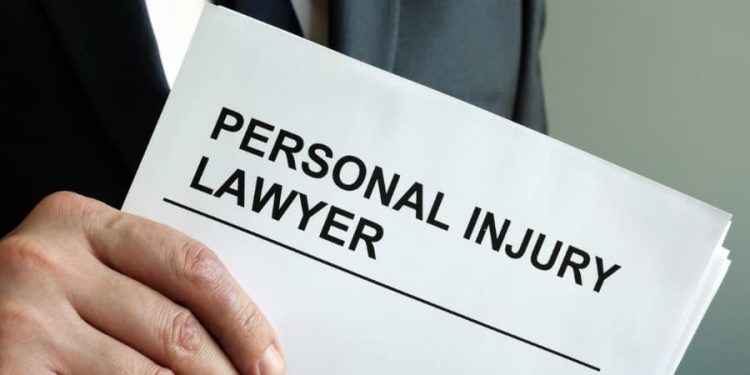When life takes an unexpected turn due to an accident or injury, the aftermath can be overwhelming. Medical bills, lost wages, and emotional trauma can add to the stress of recovery. In these difficult times, a personal injury lawyer can be your strongest advocate, helping you navigate the legal system and fight for the compensation you deserve. But what exactly does a personal injury lawyer do, and how can they help you? This guide will break it down for you.
What is a Personal Injury Lawyer?
A personal injury lawyer specializes in providing legal representation to individuals who have been physically or emotionally injured due to the negligence or wrongdoing of another party. This can include car accidents, slip and fall incidents, medical malpractice, workplace injuries, and more. The primary goal of a personal injury lawyer is to secure financial compensation for their clients to cover medical expenses, lost wages, pain and suffering, and other damages.
Types of Cases Handled by Personal Injury Lawyers
Personal injury law is a broad field, encompassing a wide range of cases. Here are some of the most common types:
- Car Accidents: These are among the most frequent personal injury claims. Whether you were a driver, passenger, or pedestrian, if you’ve been injured in a car accident due to someone else’s negligence, a personal injury lawyer can help you seek compensation.
- Slip and Fall Accidents: Property owners have a duty to maintain safe premises. If you slip, trip, or fall due to unsafe conditions, such as wet floors or uneven sidewalks, you may have a valid claim.
- Medical Malpractice: When healthcare professionals fail to provide the standard of care expected, resulting in injury or harm, it may be considered medical malpractice. This can include misdiagnosis, surgical errors, or medication mistakes.
- Workplace Injuries: If you are injured on the job, you may be entitled to workers’ compensation. However, in cases where a third party is responsible, a personal injury lawyer can help you pursue additional compensation.
- Product Liability: If a defective product causes injury, the manufacturer, distributor, or retailer may be held liable. This includes everything from faulty medical devices to dangerous toys.
- Wrongful Death: In the tragic event that an injury leads to death, the victim’s family can file a wrongful death lawsuit. This type of claim seeks compensation for funeral expenses, loss of income, and the emotional pain suffered by the family.
How Can a Personal Injury Lawyer Help You?
Navigating the legal system can be complex, especially when dealing with the physical and emotional toll of an injury. Here’s how a personal injury lawyer can assist you:
- Case Evaluation: A personal injury lawyer will assess the details of your case to determine if you have a valid claim. They will review evidence, speak with witnesses, and consult with experts to build a strong case.
- Negotiation with Insurance Companies: Insurance companies often aim to minimize payouts. A personal injury lawyer will handle all communications with insurers, advocating for a fair settlement on your behalf.
- Legal Representation: If your case goes to court, having an experienced lawyer by your side is crucial. They will present your case, cross-examine witnesses, and fight to secure the compensation you deserve.
- Expert Guidance: Personal injury laws can vary significantly by state and type of injury. A knowledgeable lawyer will ensure you understand your rights and the legal options available to you.
Choosing the Right Personal Injury Lawyer
Selecting the right lawyer is critical to the success of your case. Here are some factors to consider:
- Experience: Look for a lawyer with experience in handling cases similar to yours. Their track record of success can provide insight into their capabilities.
- Reputation: Research the lawyer’s reputation through client testimonials, reviews, and peer ratings. A lawyer with a solid reputation is more likely to be respected by insurance companies and opposing counsel.
- Communication: Choose a lawyer who communicates clearly and regularly. They should keep you informed about the progress of your case and be available to answer your questions.
- Fee Structure: Most personal injury lawyers work on a contingency fee basis, meaning they only get paid if you win your case. Make sure you understand their fee structure before proceeding.
The Importance of Acting Quickly
Time is of the essence in personal injury cases. Each state has a statute of limitations, which is the time limit for filing a lawsuit. Waiting too long could result in losing your right to seek compensation. It’s important to contact a personal injury lawyer as soon as possible after your injury to ensure your case is handled promptly and effectively.
Conclusion
A personal injury lawyer can be a vital ally in your pursuit of justice and compensation. By understanding what they do, the types of cases they handle, and how to choose the right one, you can better navigate the challenges ahead. If you’ve been injured and are unsure of your legal options, consulting with a personal injury lawyer could be the first step toward reclaiming your life and securing the compensation you need to move forward.
















